© Robert Malone for photos and commentary
All rights of reproduction reserved.
This page presents the photos taken by Mr Robert Malone of CD in his personal collection. He holds the copyright for all of them.
Each photo is accompanied by Mr. Malone’s own commentary.
We are most grateful to Mr. Malone for sending us scanned copies of the photos and granting us permission to reproduce them on our site.
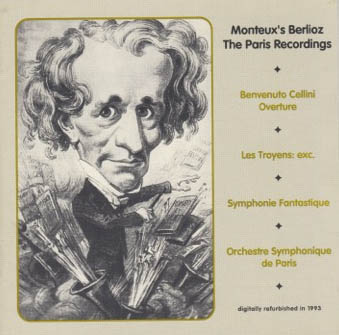
One of the first recordings of Symphonie fantastique, June 1930; Pierre Monteux / Orchestre Symphonique de Paris. Also, from the same time, Benvenuto Cellini Overture and Overture / Introduction to Les Troyens à Carthage.
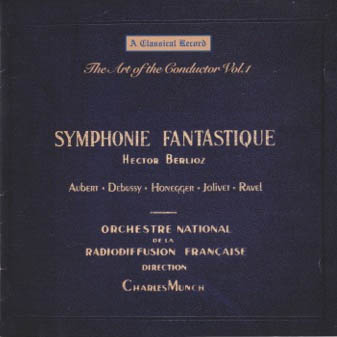
Charles Munch’s first recording of Symphonie fantastique, probably from July 1949, on a CD release.
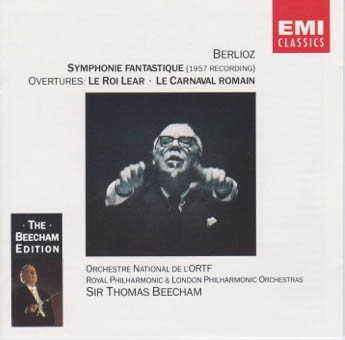
CD featuring Thomas Beecham / Orchestre National de l’ORTF, 8 and 9 November 1957 and 14 May 1958. This was recorded in mono only. Also on this release: Le Roi Lear, Royal Philharmonic Orchestra, 10 September and 11 November 1947; and Le Carnaval romain, London Philharmonic Orchestra, 27 November 1936.
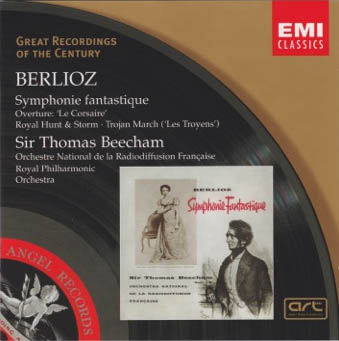
Beecham’s second recording of S.f. with same orchestra as above, 30 November and 1 and 2 December 1959 – this one in stereo. On the same CD release is Le Corsaire, Royal Philharmonic Orchestra, 7 November 1958; Les Troyens: Marche troyenne, 19 November 1959, and Chasse royale et orage, 23 March 1957.
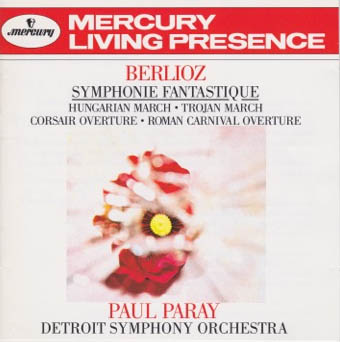
Paul Paray / Detroit Symphony Orchestra, made on 28 November 1959. Also on this CD release: Hungarian March and Trojan March (3 April 1959); Le Corsaire and Le Carnaval romain (24 March 1958).
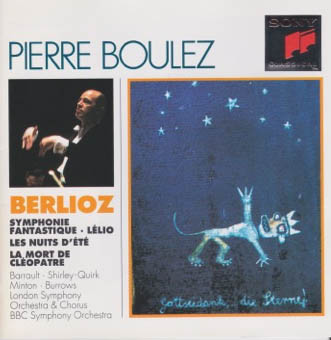
A 3-CD collection of Berlioz conducted by Pierre Boulez for Columbia Records (now Sony).
Symphonie fantastique, Op. 14, London Symphony Orchestra and Chorus; 24 and 25 October 1967. This was originally released on a 2-LP set along with:
Lélio, ou Le Retour à la vie, Op. 14b; Jean-Lous Barrault, narrator; John Mitchinson, tenor; John Shirley-Quirk, baritone. Same recording dates as Op. 14. This is an excellent version of Lélio; I cannot say the same for the S.f.; M. Barrault is probably the best narrator the work has ever had.
Benvenuto Cellini, Ouverture; Le Carnaval romain, Op. 9; Béatrice et Bénédict, Ouverture and Entracte Sicilienne; and Chasse royale et orage (from Les Troyens). With the New York Philharmonic; made on 27 April and 24 and 25 September 1971. Originally issued together on an LP.
Les Nuits d’été, Op. 7; a version with 2 soloists, Yvonne Minton and Stuart Burrows; BBC Symphony Orchestra. LP also included, Cléopâtre, with Yvonne Minton. BBC Symphony Orchestra. All made on 24 and 25 Sept. 1976.
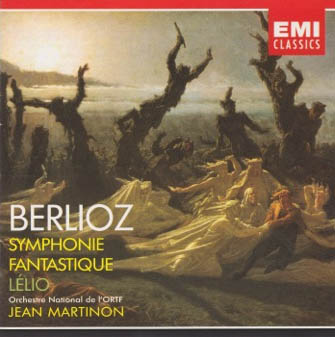
A 2-CD set from French EMI. Jean Martinon / Orchestre National de l’ORTF.
Symphonie fantastique, made on 19-29 January 1973. Martinon observes the repeat in Movement No. 1, but not in No. 4. He uses the extra brass/cornet parts in No. 2, and does so in a manner that cannot be missed.
Lélio, Jean Topart, narrator; vocal soloists Charles Burles, Jean Van Gorp, and Nicolai Gedda; Michel Sendrez, piano. Made on 27 October, 2 and 3 November 1973, and 6 April 1974.
This Martinon set may be the best combination of both works together which is available.
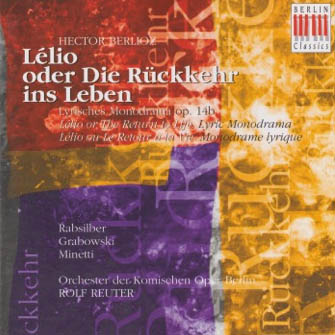
A novelty. Lélio in German! (the concluding Tempest Fantasy retains its original Italian); Rolf Reuter / Orchester der Komischen Oper Berlin; Hans-Peter Minetti, narrator; vocal soloists Michael Rabsilber, Bernd Grabowski; recorded in March and April 1988. Interestingly, I understand that the first performances of Lélio (under that title, in 1855) was in Weimar, and had been translated into German by Peter Cornelius (Berlioz conducted, Franz Liszt played piano). I am not 100% certain that this recording is of that same edition of the work.
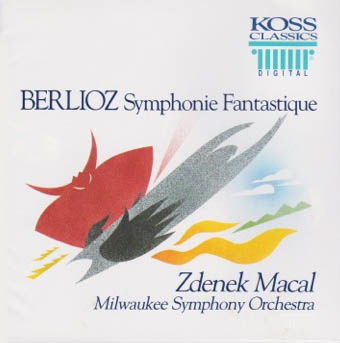
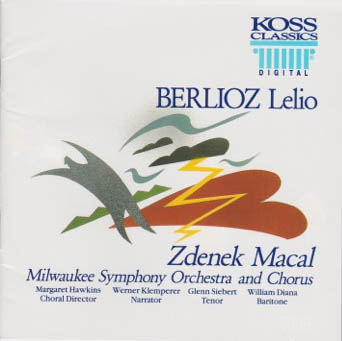
This from a label with an emphasis on audio quality.
Symphonie fantastique made on 18 September 1989. Not a bad performance, but nothing special either.
Lélio made on 21 January 1991. A real novelty, here. The narration is in English, and is done by Werner Klemperer (son of conductor Otto Klemperer, and himself a well-known actor); vocal soloists Glenn Siebert and William Diana. This Lélio is somewhat more interesting than the S.f., but far from the best.
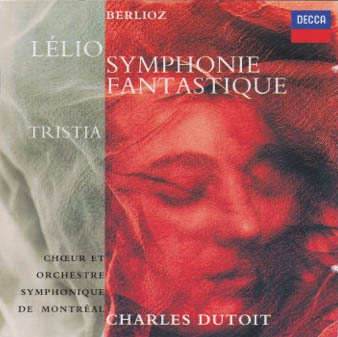
Charles Dutoit / Montreal, Berlioz cycle for Decca.
Symphonie fantastique, made in May 1984. Dutoit observes the repeat in movement No. 1, but NOT in No. 4; nor does he employ extra brass parts in No. 2.
Lélio, Lambert Wilson, narrator; vocal soloists Richard Clement, Gordon Gietz, Philippe Rouillon; Rolf Bertsch, piano; Choeur de l’Orchestre symphonique de Montréal. Recorded on 17-18 October 1996. Tristia, Op. 18; 24 May 1996.
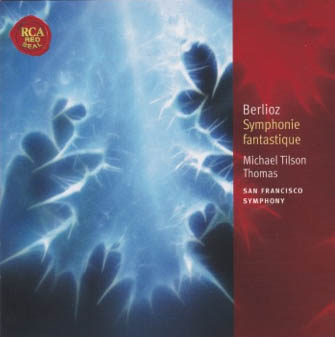
Michael Tilson Thomas / San Francisco Symphony and Chorus. Recorded in sessions of 1 July 1997 and 2 March 1998. S.f has repeats for movements Nos. 1 and 4, but no cornets in No. 2. This disc only has 2 excerpts from Lélio, Op. 14b, Chœur des ombres and Fantaisie sur la Tempête de Shakespeare.
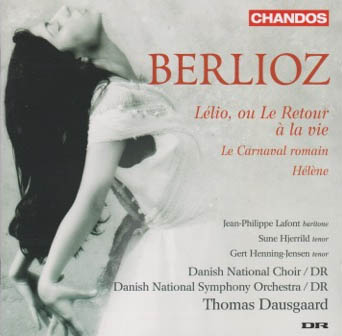
Recorded on 30 July-6 August 2004. Soloists: Jean-Philippe Lafont, narrator and baritone; Gert Henning-Jensen, tenor; Sune Hjerrild, tenor. Disc also has Le Carnaval romain and Hélène, Op. 2 No. 2.
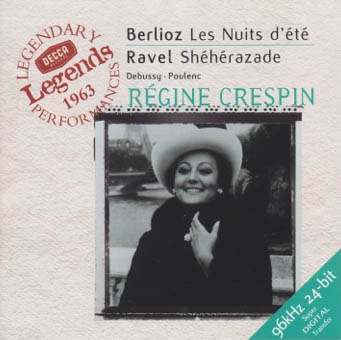
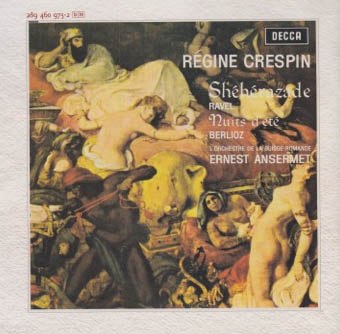
Régine Crespin, Ernest Ansermet / L’Orchestre de la Suisse Romande; made Geneva, September 1963 (with the Ravel; CD contains other music by Debussy and Poulenc).
(Back of CD shown on the right is taken from album art on original LP.)
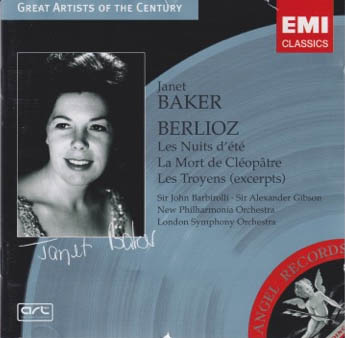
Janet Baker, mezzo-sorpano; Sir John Barbirolli / New Philharmonia Orchestra; recorded 23 August 1967 (original LP also included Ravel: Shéheéazade)
Also on this CD Berlioz: Cléopâtre, Scène lyrique, and Les Troyens, Act 5, Scenes 2 and 3; Janet Baker, Sir Alexander Gibson / London Symphony Orchestra; recorded on 15 September 1969.
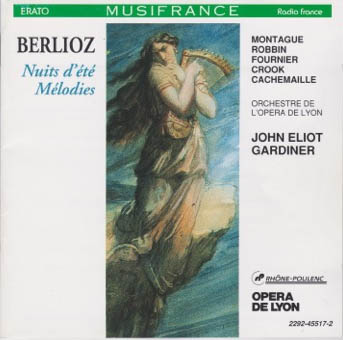
Diana Montague, Catherine Robbin, Brigitte Fournier, Howard Crook, and Gilles Cachemaille; Orchestre de l’Opéra de Lyon / John Eliot Gardiner; Recorded in 1989. Contains:
Les Nuits d’été, Op 7; on here sung by four vocal soloists.
Le Jeune pâtre breton, Op. 13 No. 4
Le Chasseur danois, Op. 19 No. 6
Zaïde, Op. 19, No. 1
La Belle voyageuse, Op. 2, No. 4
La Mort d’Ophélie, Op. 18 No. 2
Aubade, published in 1975
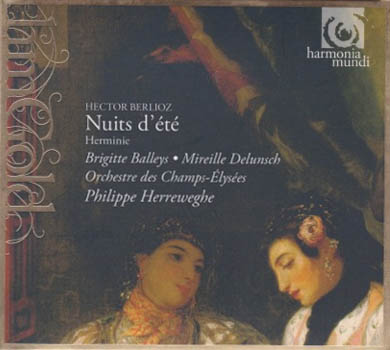
Original release 1995. Brigitte Balleys is the mezzo-soprano in Op. 7; Mireille Delunsch is soprano in Herminie, Scène lyrique (1828).
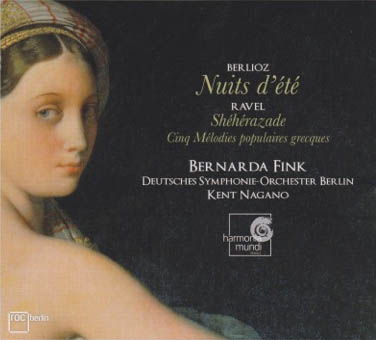
Released in 2007.
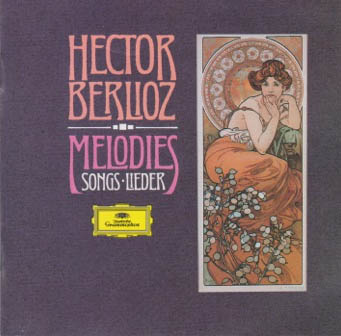
A large collection on DG, featuring François Pollet (soprano), Anne Sofie Von Otter (mezzo-soprano), John Aler (tenor), and Thomas Allen (baritone); Cord Garben (piano); and a number of other instrumental soloists as called for in individual songs. Selections made over a period of time, 1991-1993. The Melodies presented here span Berlioz’s composing life from 1818 to 1850, 29 works on the 2-CD set.
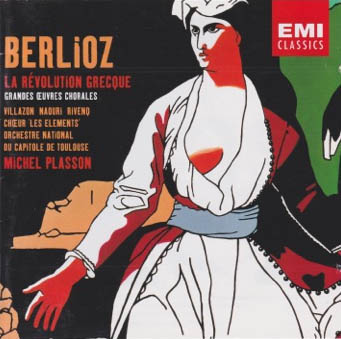
Made 26 - 30 April 2003.
Sara la baigneuse, Op. 11 (version for mixed chorus and orchestra).
Tristia, Op. 18, a collection of 3 items, at least 2 of them originally published separately. The 3 parts are: Méditation religieuse (mixed chorus and orchestra), La Mort d’Ophélie (female chorus and orchestra), and Funeral March for [the last scene of] Hamlet (wordless chorus and orchestra – Plasson omits the firing squad from the end).
Le Ballet des ombres, Op. 2 (mixed chorus and piano) – from 1829; this was Berlioz’s original Op. 2, but he later pulled the publication and re-cycled some the music into the Queen Mab Scherzo in Roméo et Juliette, and also reused the opus number for the song collection Irlande.
Chant sacré, Op. 2, No. 6 (tenor, mixed chorus, and orchestra); this collection ALSO includes the original version set for tenor, mixed chorus and piano).
Veni Creator Spiritus and Tantum ergo sacramentum (female chorus and harmonium).
Scène héroique / La Révolution grecque (2 basses, mixed chorus and orchestra); this appears to be the original version composed in 1825-26 (there was also an 1833 arrangement with military band).
Le Cinq Mai, Op. 6 (The 5th of May; mixed chorus and orchestra), probably from 1835; a solemn work lamenting the death of the Emperor Napoleon I.
La Mort d’Orphée (female chorus and orchestra), from 1827, his first cantata composed in a try for the Prix de Rome; never performed in Berlioz’s lifetime.
Chant guerrier, Op. 2, No. 3 (tenor, bass, male chorus and piano) and Chanson à boire, Op. 2, No. 5 (tenor, male chorus, and piano).
Chant des chemins de fer, Op. 19, No. 3 (tenor, mixed chorus and orchestra).
Hymne pour la consécration du nouveau tabernacle (mixed chorus and piano)
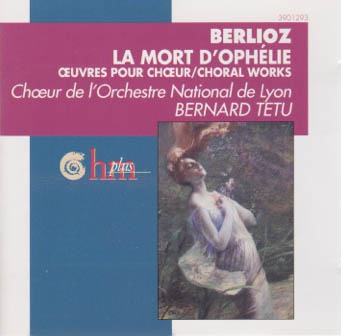
I am not sure all the selections presented here are in original forms as composed by Berlioz, or if some might not be arranged by others. Nothing on this recording involves an orchestra, but rather vocal soloists, a choir, piano, and several other instruments as needed. Recording made in September 1988. Items are:
Le Ballet des Ombres, the original Op. 2
La Mort d’Ophélie, a non-orchestrated version (later Op. 18 No. 2)
Mab, not in the same form as used in Roméo et Juliette
Chœur d’Ombres, adapted from Cléopâtre, later incorporated in Lélio.
Miranda, later incorporated into Lélio, only choir and piano on here
Chanson de Brigands, later incorporated in Lélio; presented here with voice, choir, and piano
Sara la baigneuse, Op. 11
Chanson à boire, Op. 2 No. 5.
Chant sacré, Op. 2 No. 6
L’Adieu des Bergers (1819), later used in L’Enfance du Christ.
Prière du Matin, used in Feuillets d’album, Op. 19 No. 4
Veni Creator
Chant guerrier, Op. 2 No. 3
Le Trébuchet, Fleurs des landes, Op. 13 No. 3
Hélène Op. 2 No. 2
Le Vin de Syracuse, from Béatrice et Bénédict, Act 2
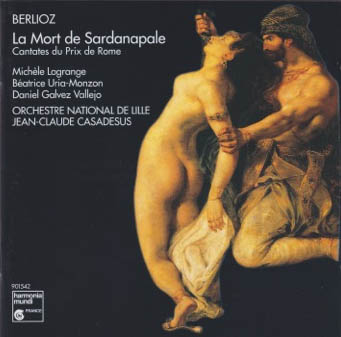
Made in October 1994 and November 1995. Vocal soloists Michèle Lagrange, Béatrice Uria-Monzon, and Daniel Galvez Vellejo. All four of the cantatas Berlioz composed for the Prix de Rome: La Mort d’Orphée (1827); Herminie (1828); Cléopâtre (1829); La Mort de Sardanapale (1830; it does not survive complete).
![]()
© Unless otherwise stated, Monir Tayeb and Michel Austin. All rights of reproduction reserved.